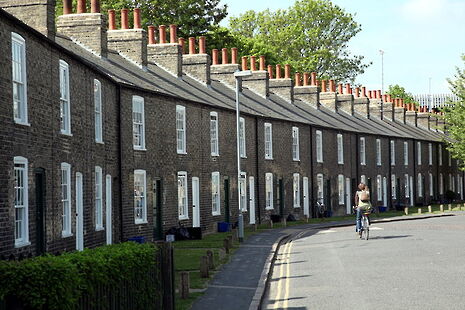Students urged to avoid fraudulent accommodation firm
Cityrooms Cambridge was cited as a fraudulent company by the Accommodation Service

Students at the University of Cambridge and Anglia Ruskin University have been urged not to use City Rooms Cambridge after concerns were raised about the company.
The status of the accommodation provider, which has been reported as fraudulent by the City Council, was raised on the ARU Accommodation Twitter account last Tuesday.
City Rooms Cambridge’s website has since ceased to function and the company’s internet presence has disappeared.
Those who attempted to contact the company, which appeared to offer attractive prices for accommodation, were asked to pay a deposit fee in addition to a month’s rent in advance without seeing the room.
Those who investigated further found that the room on offer actually belonged to an unspecified college.
Julie Darsley, from the University of Cambridge’s Accommodation Service, said that “City Rooms is well known to us as a fraudulent company” stating that “[t]here has been a rise in scams relating to accommodation and we advise all our members to be careful when searching”.
She added that students ought to always make sure to “meet the landlord face-to-face” and “never hand over money” or “take a property” without having seen it firsthand.
Accommodation scams are common in Cambridge owing to the high demand for student rooms in the city and the high proportion of international students, some of whom are not able to view accommodation in person before signing agreements.
In October 2014, Trading Standards and the universities’ officers issued a joint statement to students living in Cambridge, warning them of a growing trend of rent rip-off and raising awareness of “bogus advertisements” on legitimate websites.
Cambridge is a hotspot for scammers due to the rapidly increasing prices of local property. A report by Cambridgeshire Insight earlier this month showed that Cambridge had seen the highest annual house price increase in the country, ahead of Oxford, Bristol, and even London.
Earlier this month, the University of Cambridge also warned all staff about the dangers of online flat scams.
The university’s Accommodation Service has confirmed that several university members and visitors had lost considerable sums of money in these scams.
The Accommodation Service encouraged room-hunters to avoid using unfamiliar sites, and advised students to always arrange their housing through the university itself.
Anyone looking for a room is advised to never hand over any money until they have proof that the room is actually available for rent, and to avoid using money transferral services that can make payments difficult to trace and reclaim.
Dr Sophie Van Der Zee, who moved to Cambridge in 2013 to undertake postdoctoral research with the Computer Lab’s Security Group, nearly fell victim to such a scam.
She said that she “found a beautiful and affordable place on Craigslist”, and although the flat “seemed a little too good to be true”, she contacted the landlord. Only when he asked her for a “deposit via Western Union” did she definitely know she was “dealing with a scammer”.
Viewing the experience as an opportunity for research, Dr Van Der Zee and two colleagues examined how such scams operate, submitting their findings to an academic journal.
Users of online forum site Reddit raised the alarm in late September. To avoid getting tricked, users suggested copying and pasting parts of the room description into a search engine in order to see if they match up with existing, more reputable listings.
 News / Judge Business School advisor resigns over Epstein and Andrew links18 February 2026
News / Judge Business School advisor resigns over Epstein and Andrew links18 February 2026 News / Hundreds of Cambridge academics demand vote on fate of vet course20 February 2026
News / Hundreds of Cambridge academics demand vote on fate of vet course20 February 2026 News / Gov grants £36m to Cambridge supercomputer17 February 2026
News / Gov grants £36m to Cambridge supercomputer17 February 2026 News / CUCA members attend Reform rally in London20 February 2026
News / CUCA members attend Reform rally in London20 February 2026 News / Petition demands University reverse decision on vegan menu20 February 2026
News / Petition demands University reverse decision on vegan menu20 February 2026










